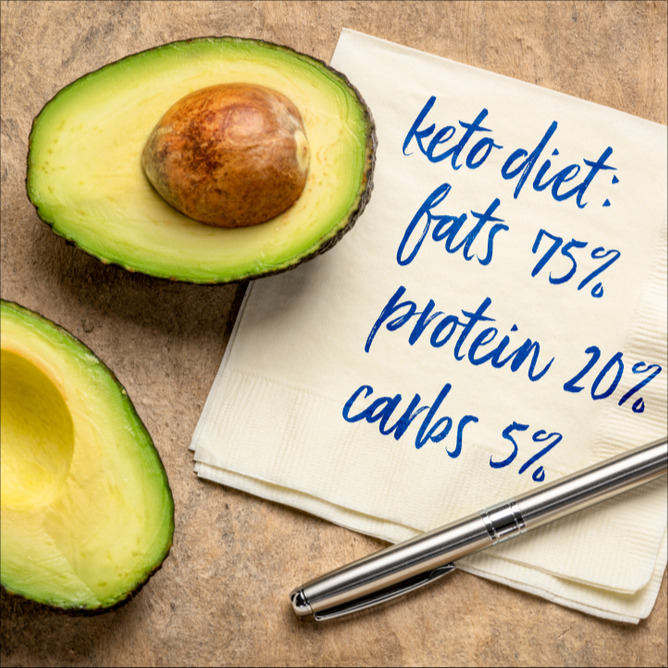
Keto diet for cancer patients: Opportunities and risks
The ketogenic diet, known for its high fat and low carbohydrate content, is increasingly being discussed as an alternative nutritional strategy in cancer therapy. But what does science actually say about the benefits and potential risks of this diet for cancer patients?
Basics of the ketogenic diet
The ketogenic diet aims to put the body into a state of ketosis, in which fat is used as the primary source of energy instead of glucose.
Tumour cells, unlike normal cells, require glucose for growth, so it is thought that limiting carbohydrate intake could inhibit tumour growth.
Research findings on the keto diet for cancer
- Theory of "starving" tumours:
The main assumption is that carbohydrate reduction minimises the glucose supply for tumour cells and thus slows their growth. Ketone bodies, which are produced when fat is burned, can provide healthy cells with energy, while tumour cells cannot use them efficiently. - Benefits according to some studies:
According to a statement by the German Nutrition Society (DGE), some animal studies show that a ketogenic diet can slow tumour growth. However, there is a lack of comprehensive human-based studies to clearly confirm these effects. - Concerns and side effects:
Experts, including the Cancer Information Service and the UGB, warn of possible side effects such as nausea, lack of appetite and weight gain. An extremely high-fat diet can also affect lipid metabolism and may not be suitable for every patient.
Comparison with other approaches
other diets such as the Budwig diet or Gerson therapy are also discussed as complementary cancer diets. Each diet has specific benefits and risks.
Conclusion and recommendations
while the ketogenic diet is considered by experts to be potentially beneficial in slowing tumour growth, there is currently insufficient scientific evidence to justify a general recommendation. Patients should bear in mind that this diet should only be followed under strict medical supervision and individually adapted to their own health situation.
a balanced diet tailored to individual needs and health status remains the best way to improve the quality of life of cancer patients. This approach not only supports physical health, but also plays an important role in psychological and emotional coping with the disease.
further information
For detailed information and personalised advice, contact a qualified nutritionist or oncologist. It is vital that those affected are well informed and make decisions based on sound scientific evidence.

